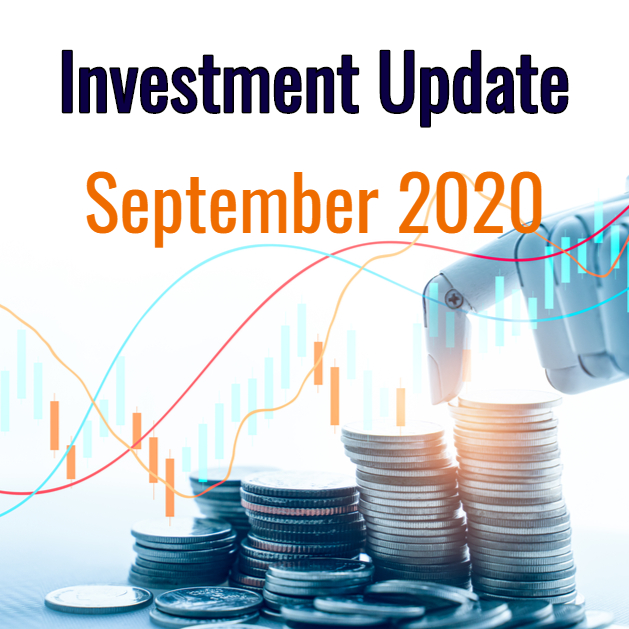Around the world, economies have re-opened with a degree of reservation. However, since August many countries have faced a resurgence in coronavirus cases, prompting concerns that a ‘second wave’ is already underway. Several European countries have witnessed a spike in coronavirus cases including France, Spain, Belgium, and Luxembourg. Even once ‘safe’ countries such as Denmark & Iceland have been added to the UK Governments ‘Red List’ for travel.
In the UK, Chancellor Rishi Sunak delivered his statement in which he announced a continued VAT cut for the hospitality sector, the introduction of a job retention bonus, and a reduction in Stamp Duty. But, despite the economic stimulus measures and extra precautions, UK markets still have yet to reach positive territory for the year to date, largely due to its heavy weighting towards the mining and hospitality sectors.
Across the Atlantic, the US earnings season got underway. Recent data showed that the 2nd quarter Gross Domestic Product (GDP) fell by its’ highest amount ever, a massive 32.9%. Shortly after the economic data was published, President Donald Trump tweeted that the 2020 Presidential Election should be delayed and called into question the accuracy of the postal voting system, as Democratic nominee Joe Biden continued to lead the polls. Recent GDP data has only added to the disconnect between economic indicators and stock market performance, and this has led to increased levels of volatility. During September, the NASDAQ reached record highs, only to see it fall by over 11%. This highlights the risk of ‘chasing returns’ and following market trends in order to generate quick returns.
Chinese stock markets rallied further, even as the country battled to contain a slight increase in coronavirus cases and trade tensions with the US. The National Bureau of Statistics reported 3.2% year-on-year GDP growth for the second quarter, following a contraction in the first quarter.
We remain largely positive on equity markets, but significant uncertainty remains over when economies can fully and sustainably reopen and how quickly they will rebound. The longer infection rates remain high and social distancing is required, the more likely there will be more lasting impacts on the economy. Although Central Banks and governments have so far helped cushion the blow to the global economy and markets, ultimate success will be measured by the extent that companies avoid solvency problems and workers return to employment.
Author
-

Foresight Wealth Strategists have been providing extensive financial planning advice to Hale and the surrounding areas for 25 years - info@foresightws.co.uk
View all posts

















































